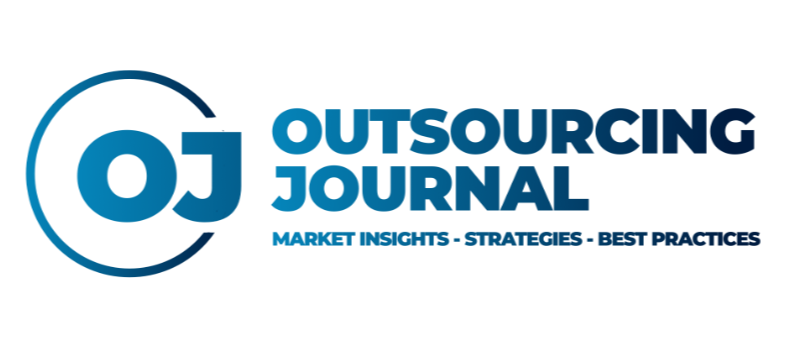Growing watermelons
A common problem when outsourcing is doing the opposite of delegating responsibilities and tamping down in an attempt to control actions everywhere – even when taking place outside the organization. Those service departments that attempt to cede control, yet impose an unlimited number of requirements and pre-conditions over their external partners (in other words, rewarding and punishing them) create overly burdensome service level agreements (SLA).
By imposing strict pre-conditions, service team leaders create the illusion of control. By prescribing requirements for multiple processed calls per hour by members of your outsourced team, you run the risk of service agents picking up the phone then hanging up right away to get their score up to meet the pre-required numbers mandated by the SLA.
If this is your approach to quality outsourcing, you’re actually in the business of growing watermelons instead of improving your user’s experience. A melon is what an overly SLA-driven service desk risks becoming. Performance management stats may be green – like the skin of a watermelon – and your organization’s leadership teams are happy, but cut that melon open and inside you find red, mushy warning signs of lousy user satisfaction scores. And resentment — toward your team and your processes. In other words, because of your iron-clad SLA, outsourcing some of your services have done little to improve the user experience.
These types of pre-conditioned SLAs are what is known as watermelon SLAs. They are green and healthy on the outside, but red and mushy on the inside. Such agreements don’t help you achieve your goals of satisfying users; they allow you to try to control even more processes that you instead should be relinquishing control over.
However, if you do want to develop specific performance indicators, focus on these actions to improve user satisfaction. These are XLAs.
Outsourcing is collaboration
Ultimately, creating XLAs and setting up performance indicators is an opportunity to collaborate with external partners that are attempting to help you improve your organization’s overall user experience. Organizations that work closely together mean you are better able to identify pain points and reduce faults and wrongs.
Then, if something does go wrong, your team has a vested partner that can help you work a solution. SLAs, as usually designed, can lead to mistrust and opposition between partners creates tension and stress rather than reward. However, if you are trying to increase customer satisfaction, you will need help from others. You can’t learn to do everything well.
Through this, you can cede control even if doing so might be difficult. Eventually, this will lead to your ability to identify partners that can bear responsibility for placing your users at the center of all that you do, the goal you are trying to achieve in the first place.
Ceding ego and control
Ceding control allows you to get your ego out of the way and place your team in a winning position as it relates to the service it provides. However, this is a difficult proposition. There are entire tomes of books filled with ways in which you can attempt to reduce the effects of your ego on your life and outcomes. No simple journey. But, (as they say), this is essential.
Ultimately, the reason this is difficult is that it requires IT teams ceding control and responsibility to external parties. The benefit is obvious, though. In such instances, you can move beyond your pain point areas, outsource them, and improve your current offerings. Doing so ensures that you are providing the best user experience.
Ceding control, in this instance, is not about relinquishing control or abandoning a post; it’s about delegation. Leadership requires delegation. Delegation allows leaders to focus on improving overall operations and performing with strength. Delegation of tasks strengthens IT operations, enabling you to outsource your internal weaknesses to enhance those parts of your processes.
When outsourcing work, you are then able to focus on your team’s efforts as a whole rather than on separate elements, but especially how your users see things.
 Ruben J. Franzen, President of TOPdesk US – Nearly 13 years of experience in the IT service management industry. Born in the Netherlands, Ruben was educated at Leiden University in Leiden, Netherlands (Psychology). He spent more than 30 years in the Netherlands before moving to the United States in 2017. Ruben speaks English and Dutch fluently. His areas of expertise include leadership, customer experience, sales and business development, and service management (especially IT service management, or ITSM). Ruben has spent his entire career at TOPdesk. He joined the company almost 13 years ago as a sales representative, based in the company’s global headquarters in Delft, The Netherlands. His other roles included inside sales account manager, key account manager, and head of sales for TOPdesk US. Currently, he is the president of TOPdesk US, based in Orlando, Florida. TOPdesk is a leading global provider of innovative enterprise service management solutions.
Ruben J. Franzen, President of TOPdesk US – Nearly 13 years of experience in the IT service management industry. Born in the Netherlands, Ruben was educated at Leiden University in Leiden, Netherlands (Psychology). He spent more than 30 years in the Netherlands before moving to the United States in 2017. Ruben speaks English and Dutch fluently. His areas of expertise include leadership, customer experience, sales and business development, and service management (especially IT service management, or ITSM). Ruben has spent his entire career at TOPdesk. He joined the company almost 13 years ago as a sales representative, based in the company’s global headquarters in Delft, The Netherlands. His other roles included inside sales account manager, key account manager, and head of sales for TOPdesk US. Currently, he is the president of TOPdesk US, based in Orlando, Florida. TOPdesk is a leading global provider of innovative enterprise service management solutions.
Photo by Nauris Pūķis on Unsplash
